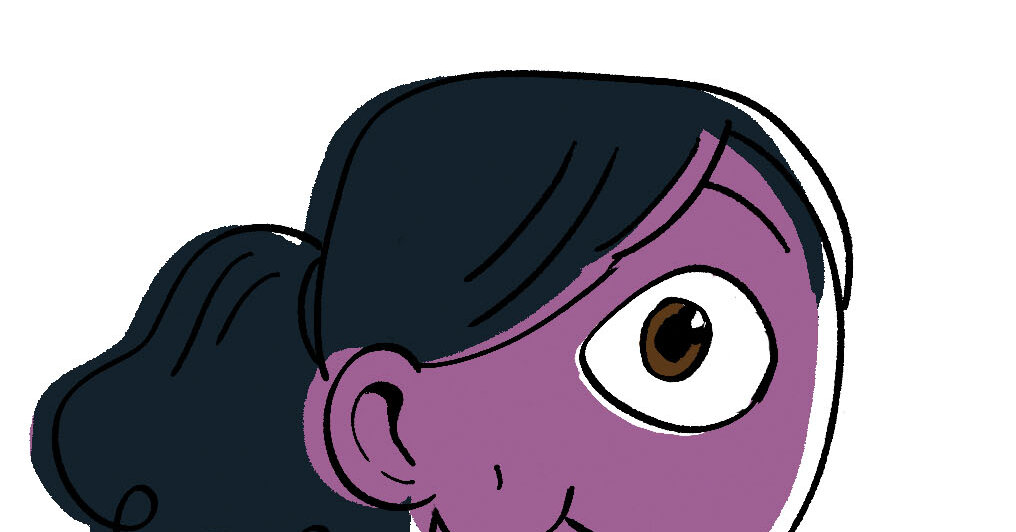
In the new graphic novel “Cyclopedia Exotica,” immigrants with one eye coexist uneasily with their two-eyed neighbors.
Members of the cyclops community are targeted by curious online daters and porn addicts, as well as cosmetic surgeons eager to give them that desirable two-eyed look. They contend with xenophobes protesting mixed marriages, hateful comments from subway Karens and, in some cases, physical violence.
In 2018, when the artist and author Aminder Dhaliwal began sharing pages with her nearly 250,000 Instagram followers, she was drawing from her experiences as a South Asian woman growing up in England and Canada, but she wondered if the topic was relevant.
“I remember saying to a friend, I want to do a book on microaggressions, but that’s, like, so old. Is it even worth doing?” she said in a phone interview from Burbank, Calif., where she now lives.
Three years on, Dhaliwal’s book seems particularly of the moment. It’s tough to miss the parallels between its characters, minorities singled out because of their eyes, and the spate of reported attacks on Asian people in the United States over the past months. “I could not imagine that this would be happening this year,” she said.
Her critically acclaimed 2018 debut, “Woman World,” imagined an idyllic, supremely chill future in which guys went extinct years ago. (Spoiler alert: They aren’t really missed.) Published by the Canadian comics house Drawn & Quarterly this month, “Cyclopedia Exotica” is her second book and has already connected with a diverse readership.
“A lot of the microaggression stuff was specifically about Asians,” Dhaliwal, 32, said. “But I also get questions like, ‘Is this about queer people?’ Or, ‘I relate to this so much as a trans person.’”
Born in Wembley, London, she moved when she was 11 to Brampton, Ontario, a predominantly South Asian suburb of Toronto. She loved to draw from an early age, tracing the covers of her brother’s video game cases and creating Harry Potter fan art. She knew she wanted to do something art-related but wasn’t sure what she could do or whom to even ask. “Being an Asian kid, I feel like my family had access to every doctor,” she said. “But I didn’t know anyone doing art.”
Inspired by a presentation at Sheridan College given by a Disney “Beauty and the Beast” animator, Dhaliwal enrolled in the school’s animation department. “He was this larger guy with a big old beard, and he flips a switch and he’s Belle,” she said. “It was just bananas to me. I knew at that moment that I wanted to dedicate my life to this craft, because it just seemed so fun and silly.”
After graduation, Dhaliwal found work in Los Angeles as a writer and artist on animated shows like “The Fairly OddParents” and “Sanjay and Craig.” The work was rewarding — in 2020, she earned a spot on Variety’s list of “Ten Animators to Watch” — but the secrecy and nondisclosure agreements involved wore her down. “So much of my day-to-day is hidden behind N.D.A.’s,” she said. “You get exhausted not getting to talk about the cool things you’re working on or getting to process the hard things you’re going through.”
After working for four years on a pilot for an animated series that never got greenlit, she knew she had to create her own comics, things she could post online for immediate feedback. She started with a Harry Potter spoof, then a tongue-in-cheek comic based on the Japanese manga series “Death Note.”
“Woman World” came to Dhaliwal after she participated in the 2017 Women’s March in Los Angeles and saw signs that read “the future is female.” What might that look like, she wondered? As with “Cyclopedia Exotica,” she questioned her idea early on. “I remember starting to write it and thinking like, ehhh, feminism is doing great,” she said. “And then the #MeToo movement happened, and I was like, oh yeah.”
The animation industry had its own reckoning in 2018, dubbed the #MeToon movement. Dhaliwal and her fellow animator Megan Nicole Dong (“Pinky Malinky,” “How to Train Your Dragon 2”) joined others in creating an organization that led to changes in human-resources practices at several studios and the one-year suspension of the “Loud House” creator Chris Savino following sexual harassment allegations. “Initially, we were just trying to create a safe space to talk about things that had been happening in animation,” Dong said. “But it evolved into a much bigger movement within our industry.”
The success of “Woman World” gave Dhaliwal new confidence. “I had been working as a comedy writer for years and didn’t know if I was funny,” she said. “I remember asking one of my office mates, ‘Am I funny?,’ which now seems like such a sad question. It’s like a teenager asking a friend, ‘Am I pretty?’ I didn’t realize how much I needed someone else to say yes, you’re funny.”
Unlike “Woman World,” the inspiration for “Cyclopedia Exotica” didn’t come from a march or movement. “I wish I could tell you there was some really beautiful reason,” Dhaliwal said. “But truly, I just found cyclopes so interesting. So often they just look like people, except for their one defining feature. The first thing I remember sketching were pinup drawings of cyclopes, and it went from monsters in erotica to looking at how minorities find acceptance through being attractive.”
Dhaliwal is among several artists who have showcased and serialized their work on Instagram, including Lucy Knisley (“Kid Gloves”), Shelby Lorman (“Awards for Good Boys”), and Liana Finck (“Passing for Human”). Like Dhaliwal, many use social-media platforms to show their work, describe their creative processes and discuss everything from depression to writer’s block.
A Rise in Anti-Asian Attacks
A torrent of hate and violence against people of Asian descent around the United States began last spring, in the early days of the coronavirus pandemic.
-
- Background: Community leaders say the bigotry was fueled by President Donald J. Trump, who frequently used racist language like “Chinese virus” to refer to the coronavirus.
- Data: The New York Times, using media reports from across the country to capture a sense of the rising tide of anti-Asian bias, found more than 110 episodes since March 2020 in which there was clear evidence of race-based hate.
- Underreported Hate Crimes: The tally may be only a sliver of the violence and harassment given the general undercounting of hate crimes, but the broad survey captures the episodes of violence across the country that grew in number amid Mr. Trump’s comments.
- In New York: A wave of xenophobia and violence has been compounded by the economic fallout of the pandemic, which has dealt a severe blow to New York’s Asian-American communities. Many community leaders say racist assaults are being overlooked by the authorities.
- What Happened in Atlanta: Eight people, including six women of Asian descent, were killed in shootings at massage parlors in Atlanta on March 16. The motives of the suspect, who has been charged with murder, are under investigation, but Asian communities across the United States are on alert because of a surge in attacks against Asian-Americans over the past year.
“Cyclopedia Exotica” begins with the story of Etna, the world’s first cyclops sex symbol. Later, other cyclopes deal with being perceived as overly submissive, the lack of cyclops representation in Hollywood movies, and worries about whether mixed children will have one eye or two.
“Aminder has always been so observant about everything,” Dong said. “She’s also friends with so many people, and so many different kinds of people, that all of these things in her book feel very authentic, because they’re either based on things she’s experienced or things her family and friends have gone through.”
One cyclops goes to a cosmetic surgeon to get two eyes — a nod, Dhaliwal said, to double-eyelid surgeries targeted at Asians. The character’s surgery doesn’t take. “People die for beauty, because they feel they don’t look a certain way,” she said. “But so often people trivialize beauty, and say things like, you need to get over it, or you need to be OK with yourself.”
“That’s the message animation shows always try to tell kids,” she continued. “Be true to yourself. But I think that can be really hard to swallow when the world has punished you so often for being who you are.”
In many ways, the current climate of anti-Asian hate feels familiar to Dhaliwal. “I remember after 9/11, and for the next 10 or 15 years, it just sucked having brown skin. It seemed like every offhand joke was about being a terrorist. And then you get this odd experience where you’re like, finally, the Eye of Sauron turns to another group, and your first reaction is like, phew, we’re out of it, the eye’s not on us anymore! When instead, we should be thinking: No one should ever feel like this.”
Dhaliwal is working on a new comic series that she hopes to begin posting on Instagram this month. She’s also written for the upcoming Netflix animated series “Centaurworld,” created by Dong, and was recently selected to serve as a mentor and consultant on the Creative Council of Cartoon Network’s shorts program, “Cartoon Cartoons,” which will showcase the work of diverse and up-and-coming animators.
While Dhaliwal probably won’t be telling her mentees to just be true to themselves, she will be able to share what it means to be a working animator in an industry that’s gotten more inclusive but still has a ways to go. “I’m going to get to give creative feedback to all these people who are trying to make something and do something really creative,” she said. “It’s exciting to be in this position, because I’ve been in their position so often.”
Follow New York Times Books on Facebook, Twitter and Instagram, sign up for our newsletter or our literary calendar. And listen to us on the Book Review podcast.




